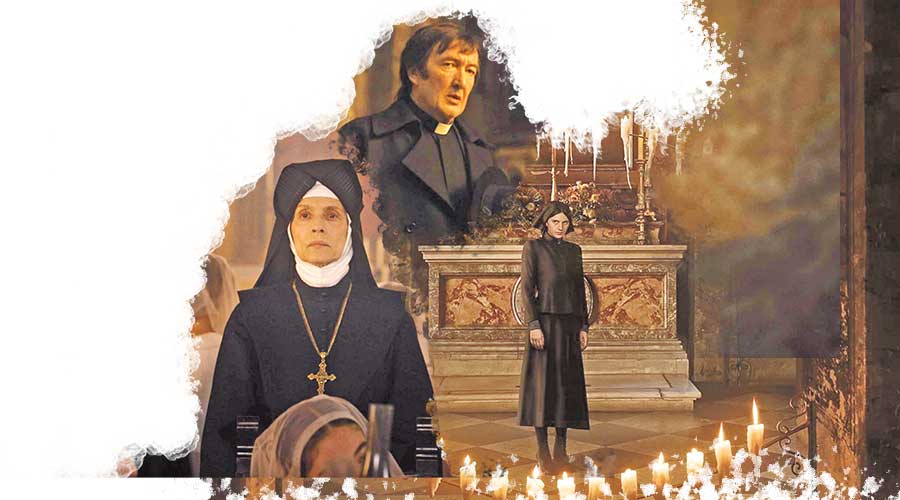What’s to watch on Netflix?
- 27 Apr - 03 May, 2024

“The miracle of life can be a messy business,” you hear in The First Omen, a stunning prequel to Richard Donner’s timeless horror classic, The Omen (1976), about the evildoings of a demonic orphan adopted by a pair of unsuspecting Americans in London. And just like in the recent, Sydney Sweeney-starring religious gaslighting knockout Immaculate, it is a messy, skin-crawling business indeed, considering the life created is no other than that of the Antichrist.
The First Omen is proudly an Omen movie with all its symbolism, ‘70s vibes and earthy colour palette and insidious scares intact; ones that will linger and multiply once you turn your lights off nightly. So if the idea of a legacy-prequel to a classic made you roll your eyes at first, think again. Not only does Stevenson, alongside her co-writers Keith Thomas and Tim Smith, remind us what made the line, “It’s all for you, Damien!” so chillingly iconic back in 1976, they also instantly justify the need for an origin story for Damien, the Antichrist parented by an American diplomat and his wife, played by Gregory Peck and Lee Remick (The new film’s homage to Peck is both, wonderful and a cue that you can run straight back home and press play on Donner’s film for an experience as seamless as watching the first two Halloween movies back-to-back).
The story is of Margaret Daino, a fresh-off-the-boat American novitiate in Rome, tasked to work at an orphanage prior to taking her vows. She arrives at the Italian capital all wide-eyed and innocently excited. To Margaret, the wows of chastity and poverty she is about to take is her existential purpose, especially at a time when there is political unrest everywhere and people are turning their backs to the church. Still, she does let a fellow novitiate – the enthralling Maria Caballero’s Luz – dress her up in seductive clothes and take her to a hot dance club. Why cover their bodies and give up on adventures sooner than they need to, Luz believes. Perhaps a little tempted, and definitely too timid to challenge the confident authority of Luz, Margaret follows her lead, and wakes up alarmingly not recalling what happened with the guy she met the night before.
Elsewhere, Margaret immediately forms a bond with Carlita played by, an unforgettable newcomer we’ll hopefully hear more from, delivering a performance both, vulnerable and terrifying. An eerie troublemaker like Margaret used to be during her problem-child days, Carlita gradually settles into Margaret’s affection and protection, something that doesn’t sit well with the orphanage’s elders, like the strict and intimidating Sister Silva. Also in the mazy mix is Father Gabriel, a young priest Margaret befriends before finding herself stuck deep inside a bone-chilling conspiracy where no one can be trusted.
The most exciting thing about The First Omen is how Margaret is an evident scholar of the supernatural horror genre, unmercifully playing with our perception and orchestrating an escalating sense of paranoia with ease. In that, rather than unsettling the audience with subtle, suggestive scares and overloading the story with trauma-based angles (a trap many of the recent genre outings sadly fall into), she gives us a first-rate motion picture in the old-school way: smartly agile, elegantly filmed and damn scary, with a stunning period production design and costuming, as well as touches of Neorealist mis-en-scène as immersive as they come.
But that doesn’t mean the film is sans contemporary meaning – far from it. In that, it’s a pleasant surprise how The First Omen plays like a more serious companion piece to Immaculate in spotlighting the hypocrisy of religion, one that rings timelessly true both, in the narrative’s decades-old period and in today’s post Roe v. Wade world. In fact, the painful and political loss of one’s bodily autonomy is so top of mind in The First Omen that it unleashes onto the world one of the most shocking birth scenes of cinema… perhaps ever, confronting the audience with what that pain looks like, and how demonic it just might feel. It’s glorious and it’s all for us.
COMMENTS